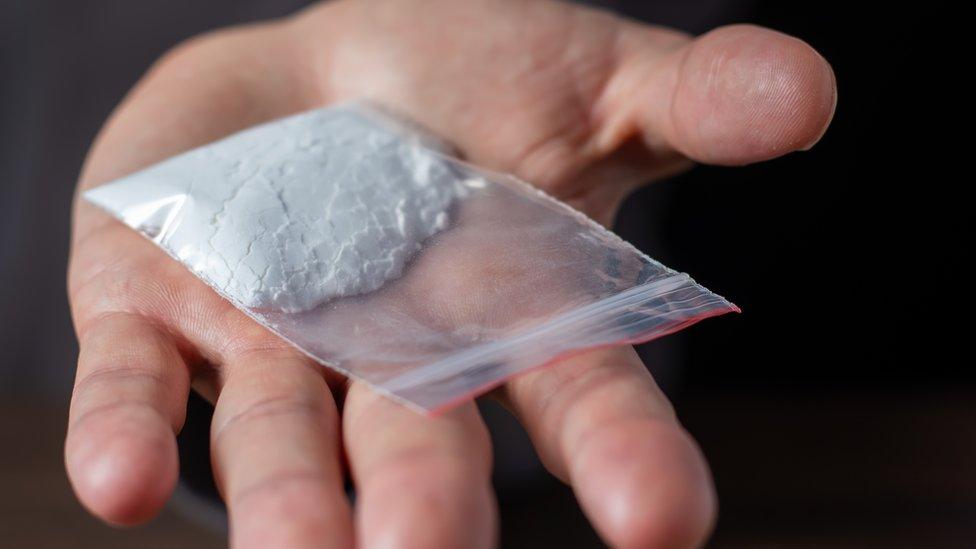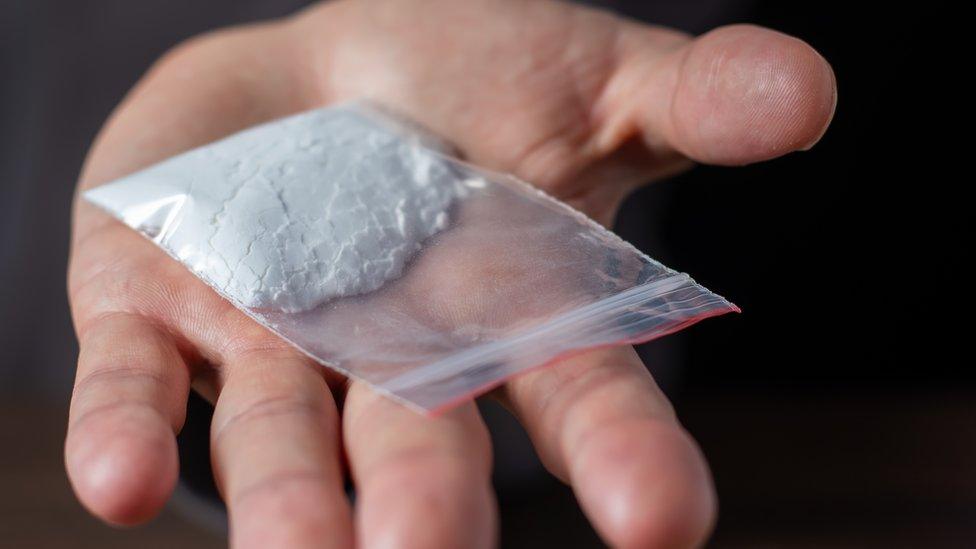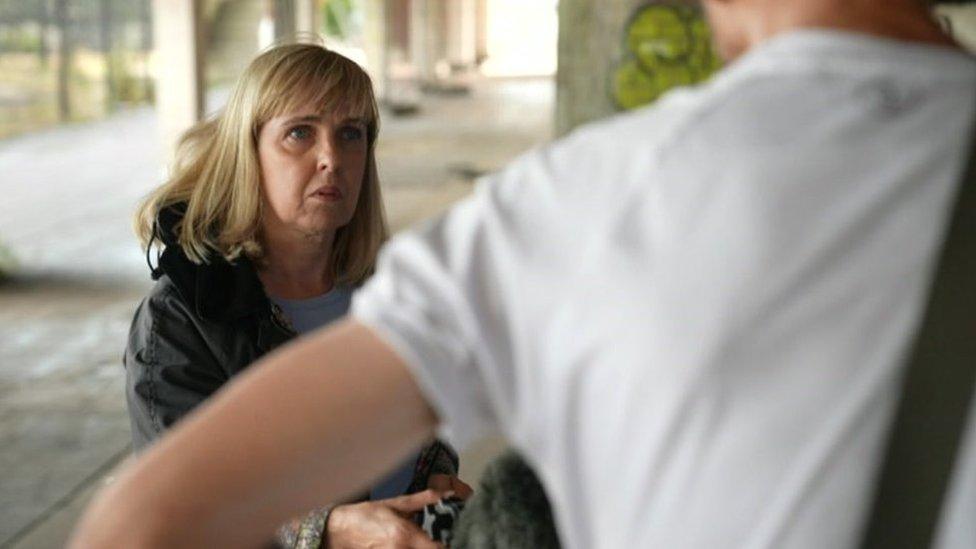Monkey dust users to benefit from Stoke-on-Trent help scheme
- Published

Monkey dust has become a huge issue in recent years in Stoke-on-Trent
Users of psychoactive drugs including monkey dust will be offered new support by a charity.
More than £440,000 will be used in Stoke-on-Trent to improve users' access to accommodation alongside substance abuse treatment.
Concrete, a charity based in the city, said the scheme was needed as many users were excluded from getting housing due to their habit.
The cause secured the funding from the government via the city council.
Monkey dust has become a huge issue in recent years in Stoke-on-Trent and Staffordshire Police has set up a dedicated operation to try to disrupt its supply.
The drug can cause violence and paranoia, with some users jumping off buildings or trying to eat glass.
One addict said monkey dust was worse than heroin and crack cocaine
Three new Concrete staff members will be paid with the funding which will last until March 2025.
They would help psychoactive drug users get secure, safe housing and support them through treatment, the charity said.
It added the scheme was also aimed at finding gaps in support for users and would contribute to wider research into monkey dust's presence in the city.
In May, the government said it was considering reclassifying the synthetic drug as a Class A substance - the most serious for sentencing in courts.

The charity's chief executive, Julie Guildford Smith, said she hoped the scheme would break a "vicious cycle" of homelessness
The charity Concrete is part of the Honeycomb Group and its chief executive, Julie Guildford Smith, said: "Without somewhere safe and secure to live, it's difficult [for users] to make any kind of progress towards a new chapter."
She added the project would aim to break the "vicious cycle of homelessness that psychoactive substance users often experience".

Follow BBC West Midlands on Facebook, external, Twitter, external and Instagram, external. Send your story ideas to: newsonline.westmidlands@bbc.co.uk, external
Related topics
- Published11 May 2023

- Published26 June 2023
